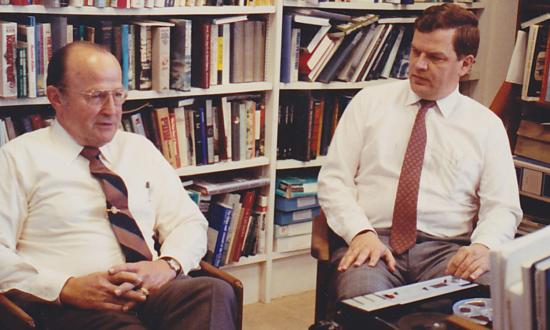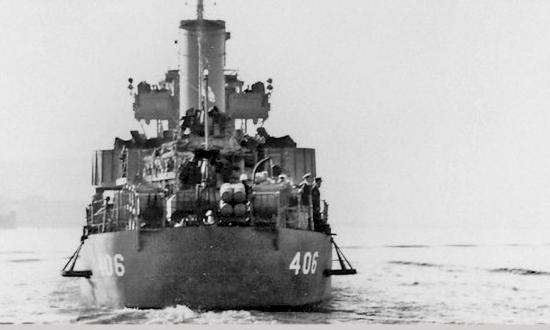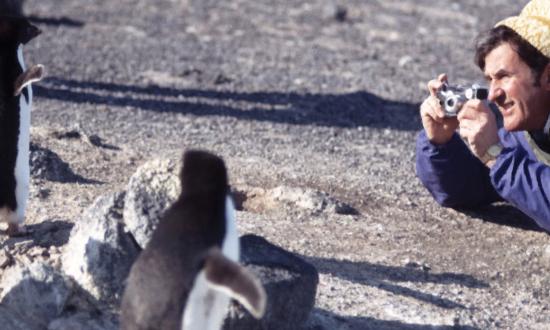On 16 November 1963, President John F. Kennedy visited the test ship USS Observation Island (EAG-154) to watch the USS Andrew Jackson (SSBN-619) conduct a submerged firing of a Polaris A-2 missile. Six days later, he was assassinated. The President’s final visit to the fleet is recalled hauntingly by Captain Herbert E. Hetu in the following excerpt from his U.S. Naval Institute oral history.
The death of President Kennedy 60 years ago this November sent shock waves through the nation; the grief was felt particularly strongly among the Sea Services, as JFK had famously served in the Navy during World War II. The profound sense of loss felt in the wake of his passing is captured in the second excerpt below, from the Naval Institute oral history of U.S. Coast Guard Admiral James M. Loy.
HETU: It was exhilarating for me to be as close as I am to you to Kennedy, who I thought was a really incredible guy. Kennedy had extraordinary charisma; I mean, he lit up a room. I’ve been around several Presidents, and I just never had that same feeling. He was magic; he just had that electricity around him, an aura.
And the sailors loved him, boy, yes. You know, the PT boat hero and all that. He was interesting—you know, he was aloof but not aloof. It was kind of a strange thing. When I shook his hand, I was speechless. I mean, really, I was just in awe, I just couldn’t believe I was really shaking John Kennedy’s hand. He was that imposing.
I’ve thought about this many times since: There were a bunch of Secret Service guys on board, shooting the breeze and drinking coffee in the wardroom. We started talking about assassinations, “How do you guys do this,” and “How do you know that somebody’s going jump out of the crowd,” and stuff like that.
I remember vividly this guy saying, “You know, our greatest fear is that if somebody really wants to kill the President and doesn’t care about his own safety, he could do it any time. We can’t stop something like that. We’re a deterrence, and we would take the bullet if we had to, but, you know.”
And I remember not too long thereafter hearing that the President had been shot. I remember somebody coming in and saying, “Kennedy has been shot in Dallas.” And it popped into my mind about talking with these guys. I didn’t know who shot him then yet, but I thought, well, somebody didn’t care. Terrible story.
LOY: I remember the horrible events of 22 November 1963 vividly. I was in a trainer for antisubmarine warfare, and the whole process of the training was interrupted with the announcement about what had occurred in Dallas. It was clearly one of those moments in your life where everybody says, “Yeah, I remember exactly what I was doing, exactly where I was,” and that was certainly one for me. All of us, I think, of our generation would attest that that was probably one of those days that we’ll absolutely never forget.
The immediate days thereafter were about catching our breath literally as a nation, let alone as individuals, and sorting our way through how we were going to grapple with this.
There was a feeling of being lost to a degree. Given the powerful and charismatic figure he had become, his death represented a very personal loss for most Americans.
And then it became coupled only five years later with the assassinations of Robert F. Kennedy and Martin Luther King. Those were terrible days for our country. I think the last half of the ’60s were as bad as they were for us culturally as a nation because of what we perceived we had lost in Dallas. Yes, those were terrible days.








